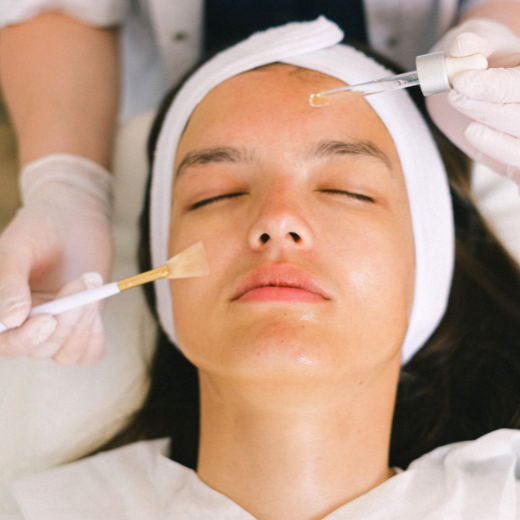Everything You’ve Ever Wanted to Know About Face Oils
Posted by Nikki Wisher on Sep 27th 2022
I’ve been an acne assassin for a long time. I always seem to have a pimple or two waiting to strike, so I’ve spent many years looking over my shoulder, doing whatever I could to spot the shadow of a breakout and attack it before it could attack me. So, naturally, when I first learned about face oils, it felt wrong. You might as well have told me, “You know what’s great for your skin? Lighting it on fire.”
That’s when I did some digging, because clearly, people are getting great results from face oils, and I wanted to know how. So, for everyone else who recoiled when they heard about face oils like I did, here’s your go-to guide.
What Are Face Oils?
To be broad, face oils are skin care oils that are designed to enhance your skin in one way or another. They’re best known as emollients, which means that they help to create a seal among your skin cells. That seal keeps moisture in your skin and keeps debris, pollutants, and other damaging nasties out.
This seal is actually the job your skin’s natural oils are supposed to be doing, and sometimes they do a great job but sometimes they slack a bit. Face oils are designed to complement your natural oils for a stronger protective barrier.
What Are the Most Common Types of Face Oils?
While face oils are largely used for hydration, they can be designed in different ways to serve other purposes for your skin too. When you start to shop around, you’ll notice many types of face oils, so let’s talk about the top types you’ll see.
Cleansing oils are highly popular. These oils, of course, are designed for cleansing your skin. They can reach into your pores for a refreshing clean, but they hydrate at the same time. Translation: you don’t end up with that weird tight feeling you get when you use many other kinds of facial cleansers.
You’ll also spot plenty of anti-aging face oils . Some manufacturers choose oil blends and ingredients that don’t just hydrate your skin but reduce signs of aging too. This can be a great way to step up your anti-aging routine.
Another common type of face oil is a soothing or repairing oil . Some of us lucky few have skin that’s prone to irritation and inflammation. While hydration alone can help with this, soothing face oils typically have other ingredients too or use specific types of oils that ease irritation.
How to Use Face Oils
Any time you add a new piece to your skin care routine, there’s the question of how you incorporate it effectively. Don’t worry, because with face oils, it’s simpler than you think.
The general rule in skin care is to apply your products from lightest to thickest (after cleansing and possibly toning first, of course). This means that if you’re using, for example, a serum and then a moisturizer, you want to use your face oil after the serum and before the moisturizer.
Most face oils are safe to use in the morning and at night. You typically apply them by putting a few drops onto your hands, rubbing your hands together, and then massaging the oil onto your face evenly. Make sure you follow the instructions on your oil bottle, though, because each product can differ.
There are a few other ways to incorporate face oils into your skin care too. You could, for example, add a few drops to your daily or nightly dose of moisturizer and apply the products together. If you’re a fan of the growing gua sha trend, face oils are also fantastic to use for facial gua sha.
Who Should Use Face Oils?
Face oils can be a wonderful complement to your skin care routine, but they aren’t essential. Think of them more as a luxury. They’re most helpful for people with dry skin, and now that we’re transitioning into fall weather, that’s just about anyone.
There’s one thing to keep in mind, though: if you have acne-prone skin, many face oils aren’t a good fit for you. Some can clog pores very easily, leading to breakouts. That’s particularly true for mineral oils and synthetic oils.
With that being said, though, there are some face oils that can actually help with acne (yes, really). Certain types of oils, especially natural plant oils, can help to balance your natural oil production. Try the Tuel Balance Refining Essential Oil Blend for example.
How to Get Started with Face Oils
If you’re sold on face oils and want to see how they work with your skin, why not give them a try? Look for face oils that are designed for your skin type and your skin care goals.
As with any other new skin care product, start by using the oil just once or twice per week to see how your skin reacts. If all is well, you can increase it gradually until you’re using it according to the bottle’s instructions.
Ready to try out this growing trend? Find a great oil and enjoy!

